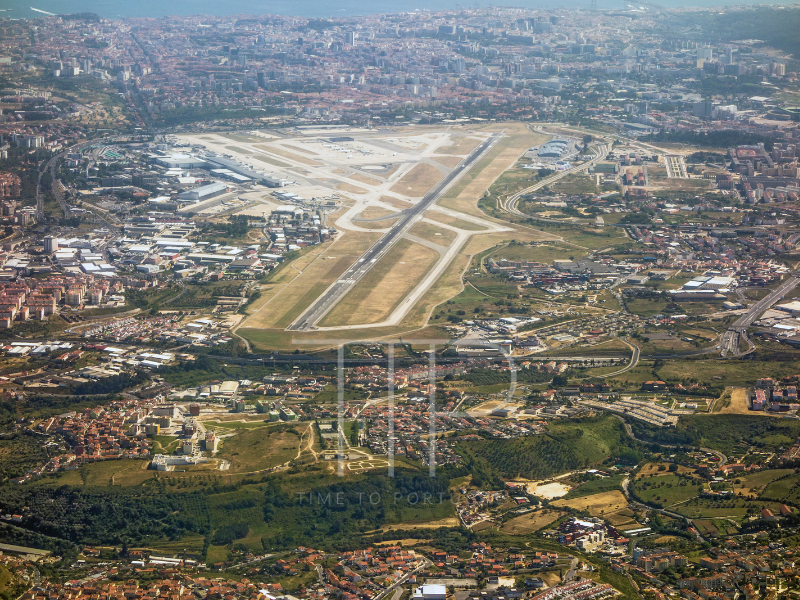Hotels fear a reduction in flights to Portugal this year, pointing out that “Lisbon airport turned away 1.3 million passengers last year”
The main warning comes from the Azores, where Ryanair has cut weekly flights from 14 to 2, with a direct impact on the 25% drop in occupancy rates at the end of the year, with the carrier threatening to make reductions in the Algarve or Madeira due to the increase in airport taxes
The reduction in flights to Portugal has already become one of the main concerns for hotels this year, surpassing the usual fears associated with a lack of manpower or the effects of inflation, according to the most recent survey by the Hotel Association of Portugal (AHP), the aim of which was to determine the results for 2023 and the outlook for this year.
“Geopolitical instability”, with the wars going on around the world, has become the main constraint of the year pointed out by hotels in Portugal, which show that their outlook for tourism growth is cooler than in 2023.
More than 90% of hoteliers in the Azores pointed to the issue of reduced flights as one of their main fears for this year, along with more than 70% in Madeira and 58% in the Algarve.
“The Azores ‘sank’ at the end of the year, with occupancy rates falling from 51% to 27%, which was a brutal drop, not least because of Ryanair’s reduction from 14 to 2 flights a week, and as a result, for example, the French market stopped in the region,” said Cristina Siza Vieira, executive vice-president of the AHP.
The “concern” about the possibility of the airline cutting flights extends to hoteliers in Madeira and the Algarve, “with Ryanair itself wanting to make a note of the increase in airport taxes” and the changes that this could bring to its operation, the AHP official also stresses – recalling that the issue of increasing taxes at national airports is a concern for 2024 assumed by the president of Turismo de Portugal, Carlos Abade.
For the AHP, the survey of hoteliers’ perspectives on the evolution of tourism in Portugal in 2024 brought “surprises”, particularly with the “giant leap” in the issue of ‘geopolitical instability’, which is now seen as the main threat for 78% of members (and remembering that the survey is based on a sample of 476 hotels, from all regions of the country).
“For the first time, the spread of tourist taxes is pointed out as a constraining factor for 2024,” as is the ‘reduction in flights’ to Portugal (a fear expressed by 49%, around half of those surveyed), or the fact that the country is going through an election period (highlighted by 10% of hoteliers). At the same time, the lack of manpower in tourism, which used to dominate the sector’s concerns, has simply “disappeared” and wasn’t even mentioned in the recent survey.
Related article: Portuguese airports reach maximum of almost 63 million passengers until
Lisbon airport ‘blocked’ reinforcement of routes to the USA
Among the most critical factors for 2024, 36% of hoteliers also highlighted the ‘capacity of Lisbon airport’. “Lisbon airport’s inability to respond to airlines that could bring in more passengers and revenue is a matter of great concern,” said Bernardo Trindade, president of the Hotel Association of Portugal, pointing out that it is the “main airport infrastructure serving the whole country”.
“In 2023 alone, Lisbon airport refused the equivalent of 1.3 million airplane seats, due to its inability to respond,” Bernardo Trindade stressed, explaining that “the reinforcement of routes to the United States, by TAP or SATA, along with the expansion of companies such as Saudi Airlines or Qatar Airways, could not be expressed to us because Lisbon airport did not have the capacity.”
Tourism growth in Portugal is coming mainly from the United States, whose tourists were considered one of the main markets for 42% of hoteliers (with the British remaining in pole position in 50% of cases), according to the recent AHP survey.
“2023 was a positive year, and 2024 could also be, but never with the levels of growth we had last year,” Bernardo Trindade predicts, stressing the need to adopt a vision of “prudence, because we are between two wars, as well as having limitations at the airport level.”
The hotels’ outlook for 2024 in terms of occupancy rates is for a year that will be “worse or the same” as 2023, in Lisbon, the Azores or the north of Portugal, while in Madeira, for example, it is expected to be “identical” to last year, but “better in the last quarter”.
Bernardo Trindade also put the emphasis on the “increase in interest rates, which has led to a higher price of credit”, and are now “double what we had during the pandemic”, stressing that it is an issue that “in an election period has to be on the political agenda”.
“The financial health of tourism companies has improved, but there are clouds on the horizon for 2024,” Cristina Siza Vieira also points out, emphasizing the sector’s concern about the increase in credit.
Siza Vieira, emphasizing the sector’s concern about the increase in taxes at national airports, and stressing that “talking about revenue or results is very different”, and loading up on the costs of a sector with a positive economic performance, but which is facing challenges, is far from the solution.
Regarding the situation in Madeira and the impact it could have on tourism, the president of the hotel association stressed that “instability doesn’t rhyme with confidence, and something that politicians need to pay close attention to are the signs of our economy”.
Related article: More than a third of flights leave Portugal’s airports late

